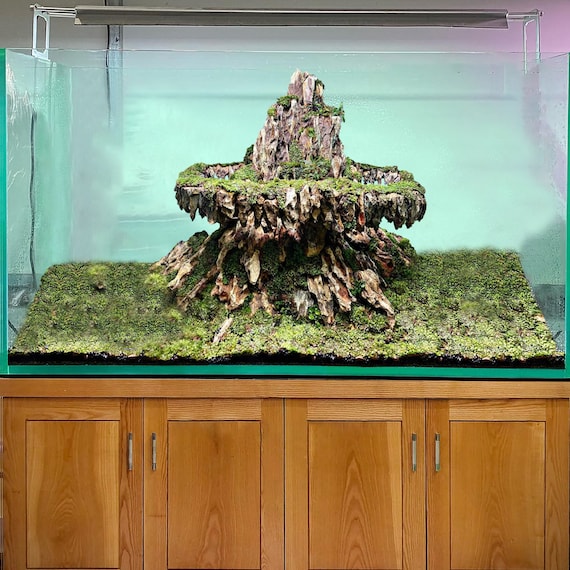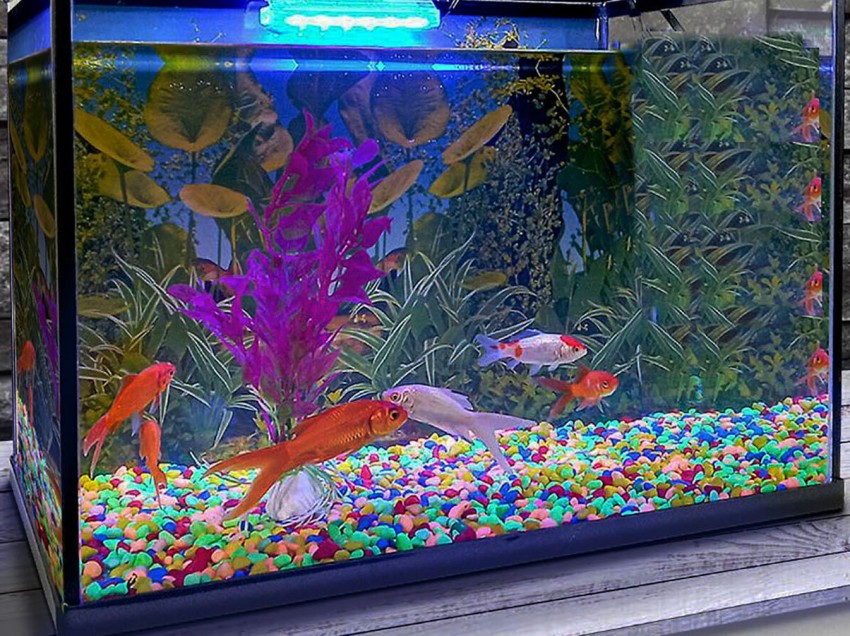When it comes to setting up an aquarium, the right decor can make all the difference. Out of the myriad of options available, stone aquarium decor stands out not only for its aesthetic appeal but also for its functionality. As an aquarium enthusiast, I’ve spent years experimenting with different types of decor, and I can confidently say that incorporating stones into your aquatic landscape is both an art and a science. Let’s dive deeper into the world of stone aquarium decor and explore its benefits, types, tips for selection, and maintenance.
The Benefits of Stone Aquarium Decor
Using stones in your aquarium comes with a plethora of advantages. Here are the primary benefits:
- Aesthetic Appeal: Stones come in various shapes, colors, and sizes, allowing you to create a visually stunning environment.
- Natural Habitat Simulation: Stones mimic the natural environment of many fish species, providing them with essential hiding spots.
- Stability: Stone decor is generally heavy, which prevents it from floating around and ensures a stable environment.
- pH Buffering: Certain stones can help stabilize the pH levels in your aquarium, promoting the health of your aquatic life.
Types of Stone Aquarium Decor

There are several types of stones you can incorporate into your aquarium, each with its unique characteristics and benefits. Below, I have compiled a comprehensive list of popular types:
1. Slate
Slate is a smooth, flat stone that is perfect for creating ledges and hiding spots for fish. It’s durable and doesn’t alter water chemistry.

2. Lava Rock
Lava rock is porous, allowing for beneficial bacteria to thrive. This stone is excellent for biological filtration in your aquarium.
3. Granite
Granite is one of the hardest stones available, providing a long-lasting decor option. Its varied colors can add visual interest.

4. Quartz
Quartz stones are typically clear or white and can create a beautiful contrast in darker aquariums, reflecting light effectively.
5. River Rocks
River rocks are smooth, rounded stones that add an organic feel to your aquarium. They’re safe for all fish and shrimp species.

Comparison Table of Stone Types
| Type of Stone | Appearance | pH Level Impact | Weight | Price Range |
|---|---|---|---|---|
| Slate | Smooth, flat | Neutral | Heavy | $5 – $15 per piece |
| Lava Rock | Rough, porous | Neutral | Medium | $3 – $10 per piece |
| Granite | Varied colors | Neutral | Very heavy | $10 – $30 per piece |
| Quartz | Clear or white | Neutral | Light | $5 – $20 per piece |
| River Rocks | Smooth, rounded | Neutral | Medium | $2 – $10 per piece |
Choosing the Right Stone Decor for Your Aquarium

With so many options available, choosing the right stone decor can feel overwhelming. Here are some key factors to consider:
1. Compatibility with Fish Species
Ensure that the stones you choose are safe for your fish species. Some stones can alter pH levels or leach harmful substances into the water.

2. Size Consideration
Consider the size of your aquarium when selecting stones. Large rocks can take up too much space, while smaller pebbles may not provide adequate hiding spots.
3. Natural Aesthetics
Think about how the stones will complement other decor elements in your aquarium. Mixing textures and colors can create an appealing layout.

4. Ease of Cleaning
Some stones can trap debris. Ensure that your selected stones are easy to clean and maintain.
Setting Up Your Stone Decor
Once you’ve selected your stones, it’s time to set them up in your aquarium. Here are some tips:
1. Create Layers
Layering different sizes and shapes of stones adds depth to your aquarium. Place larger stones at the bottom and smaller ones on top.
2. Incorporate Plants
Combining stones with aquatic plants can soften the hard surfaces and provide a natural feel.
3. Allow for Open Space
While it’s tempting to fill every inch with decor, leaving open swimming space for your fish is crucial for their happiness.
Example Layout Plan
Here’s a simple layout to consider:
- Place a few larger slate pieces on one side to create a cave-like structure.
- Add lava rocks around the cave for additional hiding spots.
- Sprinkle smaller river rocks in open areas and around plants to tie the layout together.
Maintaining Your Stone Decor
Maintaining stone decor can be simple if done correctly. Here are some tips:
1. Regular Cleaning
Use a soft brush to gently scrub the stones during water changes to remove algae and debris.
2. Avoid Harsh Chemicals
Never use harsh detergents or chemicals on your stone decor, as they can harm your fish.
3. Monitor Water Parameters
Keep an eye on your aquarium’s pH and hardness levels, especially if you’re using stones that may alter water chemistry.
Pros and Cons of Using Stone Decor
| Pros | Cons |
|---|---|
| Durable and long-lasting | Can be heavy and difficult to rearrange |
| Provides natural habitat | May require more rigorous cleaning than plastic decor |
| Enhances aesthetic appeal | Some stones can alter water chemistry |
| Variety of choices | Initial setup cost can be higher |
Frequently Asked Questions (FAQs)
1. Can you use any type of stone in an aquarium?
No. It’s important to choose stones that are safe for aquatic life. Avoid limestone or any stones that can alter pH levels significantly.
2. How do I prepare stones before placing them in my aquarium?
Thoroughly rinse stones with water to remove dust or debris. Soaking them in a vinegar solution can help check for any pH-altering properties.
3. Will stone decor affect my aquarium’s water parameters?
Some stones, particularly those with calcium carbonate, can raise pH levels and hardness. It’s essential to research your chosen stones before using them.
4. How often should I clean my stone decor?
During regular water changes, you should clean your stones to prevent algae buildup. Depending on your tank’s cleanliness, this can range from bi-weekly to monthly.
5. Can I mix different types of stones in one aquarium?
Yes, mixing different types of stones can create a dynamic look. Just ensure they are compatible with the same water conditions.
Conclusion
Incorporating stone decor into your aquarium not only beautifies the environment but also serves practical purposes essential for your fish’s well-being. By understanding the types of stones available, their benefits, maintenance, and how to set them up effectively, you can create a stunning aquatic ecosystem that thrives. From personal experience, I can attest to the transformative power of stone decor in providing a balanced and beautiful habitat for aquatic life. So, get started on designing your underwater paradise today!